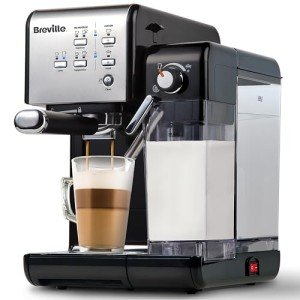Home Use Espresso Machines: A Comprehensive Guide
Espresso machines have ended up being a staple in many homes as coffee lovers seek to reproduce café-quality brews in the convenience of their kitchens. The rise in popularity has actually led to a diverse market filled with different models, functions, and prices. This article intends to supply an informative summary of home use espresso machines, assisting readers navigate their alternatives successfully.
Understanding Espresso Machines
Espresso machines work by requiring warm water through finely-ground coffee under high pressure, resulting in a focused coffee beverage referred to as espresso. There are several kinds of espresso machines categorized based on their brewing techniques and level of automation. The most common types include:
- Manual Espresso Machines : These need the user to manage the pressure and water circulation, enabling a more hands-on coffee-making experience.
- Semi- Automatic Espresso Machines : These offer automatic control over water pressure, while the user by hand grinds and tamps the coffee.
- Automatic Espresso Machines: With the push of a button, these machines instantly manage the circulation of water, making it simpler to brew espresso with constant outcomes.
- Super-Automatic Espresso Machines: These all-in-one machines manage grinding, tampering, brewing, and even milk frothing, making them ideal for users looking for convenience.
- Capsule or Pod Machines: These use pre-packaged coffee pods to develop espresso with minimal effort, but they limit option in developing strategies and flavors.
Table: Comparison of Espresso Machine Types
| Type | Control Level | Relieve of Use | Cleaning Level | Perfect For |
|---|---|---|---|---|
| Manual | User-controlled | Moderate | High | Coffee purists |
| Semi-Automatic | Partial automation | Moderate | Moderate | Home baristas |
| Automatic | Completely automated | Easy | Low | Hectic people |
| Super-Automatic | Fully automated | Really easy | Really low | Convenience seekers |
| Capsule/Pod | Fully automated | Really simple | Extremely low | Casual drinkers |
Secret Features to Consider
When picking a home use espresso machine, it's vital to consider numerous features that can considerably impact the quality of espresso and user experience.
- Pressure: Look for machines that offer at least 9 bars of pressure, as this is considered optimal for developing espresso.
- Boiler Systems: Single vs. dual boiler systems identify temperature level stability and the ability to brew espresso and steam milk at the same time.
- Grinder: Integrated grinders enable newly ground coffee, which enhances taste. Consider machines with adjustable grind settings.
- Milk Frother: For those who enjoy cappuccinos and lattes, an integrated steam wand or automatic frother is crucial.
- Size and Design: Consider your cooking area area and aesthetic choices. Machines are available in various sizes, from compact to big setups.
- Rate: Home espresso machines can vary from a couple of hundred to several thousand dollars, so it's essential to develop a budget before checking out choices.
Pros and Cons of Home Use Espresso Machines
| Pros | Cons |
|---|---|
| Benefit of brewing coffee in your home | Initial investment can be high |
| Quality of espresso is typically superior | Needs some ability, especially with manual machines |
| Ability to experiment with tastes | Maintenance and cleansing can be labor-intensive |
| Can conserve cash in the long run | Not all machines will match every coffee choice |
Maintenance and Cleaning Tips
Preserving an espresso machine is crucial for extending its life and making sure constant brew quality. Here are some useful pointers:
- Regular Descaling: Minerals from water can develop in the machine. Descale every 1-3 months, depending on water hardness.
- Daily Cleaning: Rinse portafilters, baskets, and steam wands after each use to prevent coffee oils from developing residue.
- Use Filtered Water: This can help decrease mineral accumulation and improve the taste of coffee.
- Change Gaskets and Seals: These parts might wear gradually and must be replaced to keep pressure and performance.
- Check out the Manual: Each machine has specific care guidelines; following these will ensure durability.
FAQs About Home Use Espresso Machines
Q1: What is the very best budget espresso machine?The best budget espresso machine typically depends on private needs, but designs like the DeLonghi EC155 or the Breville Bambino are popular among users for providing great value. Q2: How long do home espresso machines typically last?With correct maintenance, home espresso machines can last anywhere from 5 to 15 years, depending on the quality of the machine and frequency of use. Q3: Can I make coffees and lattes with any espresso machine?While most espresso machines can make coffees and lattes, having a dependable
steam wand or frother is vital for accomplishing the right milk texture.
Q4: Are super-automatic machines worth the investment?For Pod Espresso Machines who prioritize benefit and fast brewing, super-automatic machines can be worth the financial investment, though they may do not have some customizability in brew strength and taste. Q5: What kinds of coffee beans are best for espresso?While personal choice plays a role, beans identified as" espresso "blends are generally roasted darker, creating abundant flavors and a creamy texture when brewed.
Investing in a home espresso machine can change the day-to-day coffee routine into something unique, elevating home brews to café quality. By understanding the different kinds of machines, crucial functions to think about, upkeep requirements, and weighing the
pros and cons, customers can make informed choices that suit their private choices. As the espresso culture continues to grow, no matter the option, every brew can be a tasty experience waiting to be relished.

